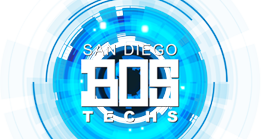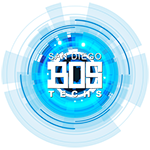As technology continues to evolve, traditional paper-based medical records are slowly being replaced by electronic health records (EHRs). This transition from paper to pixels has sparked debates and discussions within the healthcare industry. While some view EHRs as a necessary step toward modernization, others argue that it is an unnecessary expense with little added value. In this article, we will assess the benefits and drawbacks of switching to EHRs to determine its true value.
What are electronic health records?
An EHR is a digital version of a patient's paper chart. It contains all of the same information found in a traditional medical record, such as patient demographics, medical history, diagnoses, treatment plans, and medications. EHRs are accessible via a computer or mobile device and can be shared among healthcare providers, improving communication and coordination of care.
EHR technology goes beyond data collection in a single healthcare facility. It allows for the integration of data from multiple sources, such as lab results and imaging studies, creating a more comprehensive view of patients’ health.
How do EHRs enhance patient care?
In addition to improving access to patient information, EHRs offer many other benefits to both patients and healthcare providers. One significant advantage is the ability to access records remotely, making it easier for patients to receive care while traveling or in emergency situations. EHRs also facilitate communication between healthcare providers, reducing the risk of medical errors and improving overall patient outcomes.
EHR systems also have features that can improve patient engagement, such as online portals for scheduling appointments, viewing test results, and communicating with healthcare providers. This can lead to better patient satisfaction and compliance with treatment plans.
Moreover, EHRs have the potential to significantly improve public health by offering healthcare providers a comprehensive understanding of population health trends and the ability to track outbreaks and monitor disease patterns. Using anonymized patient data, researchers can also gain valuable insights into disease prevention and treatment.
Other reasons why EHRs are better than paper records
EHRs offer many other benefits that paper records simply cannot match.
- Time efficiency – EHRs save time by reducing the need to conduct extensive chart reviews and paperwork. With digital access, healthcare professionals can retrieve and update patient information quickly, streamlining their workflow and saving precious clinical time.
- Improved legibility and precision – Gone are the days of illegible notes, which were a persistent issue with paper records. EHRs support precision in documenting patient encounters, ensuring that all information is accurately and clearly captured.
- Access across locations – As patient care often involves multiple facilities and specialists, the ability to access records from anywhere with an internet connection is invaluable. EHRs transcend the limitations of physical location and enable more coordinated, seamless care.
- Balancing cost and security – While the initial cost of EHR implementation can be a hurdle, it is often outweighed by long-term savings. EHRs eliminate the need for physical storage space, reduce the costs associated with paper and printing, and minimize the risk of lost or damaged records. EHR security protocols also ensure patient information is protected from unauthorized access.
- Eco-friendliness – Transitioning to EHRs contributes to a more sustainable healthcare system by significantly reducing paper usage and the carbon footprint associated with printing and transporting physical records.
The verdict: Is switching to EHRs worth it?
There are certainly challenges and concerns associated with transitioning from paper records to EHRs, but the overall benefits far outweigh the drawbacks. EHRs offer enhanced patient care, improved efficiencies, and long-term cost savings. They also have the potential to drive important advancements in public health and medical research.
As technology continues to evolve, it is clear that EHRs are the way forward for healthcare recordkeeping. While it may take some time and resources to fully integrate these systems into the healthcare industry, the value they bring is undeniable.
To learn more about the benefits of EHRs and how to successfully implement them in your healthcare practice, schedule a complimentary consultation with us today.


